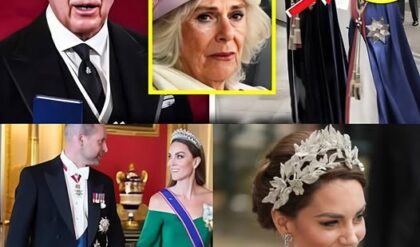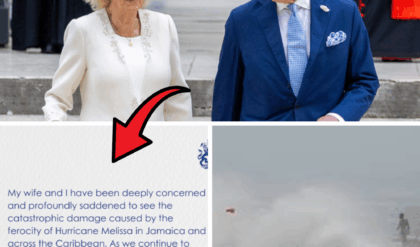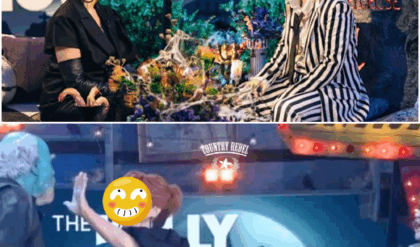When Jonathan Demme, the Oscar-winning director of The Silence of the Lambs, passed away on April 26, 2017, at the age of 73, the world lost a filmmaker whose eclectic vision and boundless energy left an indelible mark on cinema. Among the many tributes that poured in from Hollywood luminaries, Jodie Foster’s stood out for its raw emotion and vivid portrayal of a man who was not only her director but also a mentor, friend, and “champion of the soul.” In a heartfelt statement and a subsequent essay published in Variety on May 2, 2017, Foster painted a picture of Demme as a dynamic force—quirky, passionate, and deeply human—whose influence shaped her career and countless others. Her words, coupled with reflections on their collaboration on the 1991 horror-thriller classic, offer a poignant glimpse into a partnership that transcended the screen and ignited a lasting legacy.
A Bond Forged in The Silence of the Lambs
Jodie Foster’s relationship with Jonathan Demme began with The Silence of the Lambs, a film that would become a cultural touchstone and a defining moment in both their careers. Foster, already an Oscar winner for The Accused (1988), was cast as Clarice Starling, a young FBI trainee tasked with catching a serial killer through psychological sparring with the incarcerated cannibal Hannibal Lecter, played by Anthony Hopkins. Demme, known for his offbeat comedies like Melvin and Howard (1980) and Something Wild (1986), was an unconventional choice for a psychological horror-thriller, but his unique sensibility—blending raw humanity with stylistic flair—proved transformative.
Foster’s tribute, released the day after Demme’s death from esophageal cancer complications, captured the essence of their collaboration. “I am heart-broken to lose a friend, a mentor, a guy so singular and dynamic you’d have to design a hurricane to contain him,” she wrote. “Jonathan was as quirky as his comedies and as deep as his dramas. He was pure energy, the unstoppable cheerleader for anyone creative.” Her words echoed the sentiments of others, including Hopkins, who called Demme “one of the best,” and Tom Hanks, who described him as “the grandest of men.”
In her Variety essay, Foster elaborated on Demme’s infectious enthusiasm. “Jonathan was everybody’s cheerleader,” she wrote. “He was like an embarrassing grandpa at a Little League game. After every accomplishment he’d hug you so tight and do that little J.D. dance.” This childlike positivity, paired with a laser focus on his art, made Demme a rare figure in Hollywood—a director who could inspire without ego, fostering a collaborative spirit that empowered everyone on set.
The Making of a Masterpiece
The Silence of the Lambs, released on February 14, 1991, was a sleeper hit that grossed $272.7 million worldwide on a $19 million budget, becoming the fifth-highest-grossing film of that year. It swept the “Big Five” Academy Awards—Best Picture, Best Director, Best Actor (Hopkins), Best Actress (Foster), and Best Adapted Screenplay (Ted Tally)—a feat achieved by only two other films in history. Foster’s performance as Clarice, a determined yet vulnerable woman navigating a male-dominated field, was lauded for its depth and authenticity, earning her a second Oscar.
Foster’s tribute highlighted Demme’s role in shaping Clarice as a feminist icon. In a 2025 interview with Variety while promoting her film Vie Privée at Cannes, Foster called Demme her “favorite feminist director,” noting that his approach to The Silence of the Lambs was rooted in empathy and instinct, not gender. “Jonathan saw Clarice as a human being first,” she said. “He didn’t just direct me; he listened, he trusted, and he pushed me to find her strength.” This perspective was evident in the film’s nuanced exploration of gender dynamics and morality, themes that resonated deeply with audiences and critics alike.
Demme’s directorial choices—such as the haunting close-ups of Clarice and Lecter’s verbal chess matches—amplified the film’s psychological intensity. Foster recalled his meticulous yet spontaneous style in an NPR interview, noting his love for documentaries influenced his fiction work. “He would just get fascinated by something and then jump into it,” she said. “There’s a realness and a rawness to his work, a sense of his curiosity.” This curiosity shone through in The Silence of the Lambs, where Demme’s use of music, from Buddy Holly to Miklos Rozsa, and innovative shots, like the parallel frames of Clarice ringing a doorbell, created a gripping narrative.
A Champion of the Soul
Beyond their professional synergy, Foster’s tribute emphasized Demme’s personal impact. She described him as “pure energy,” a man whose passion for music rivaled his love for film. Demme’s films, including Stop Making Sense (1984), a seminal concert documentary featuring Talking Heads, and Justin Timberlake + the Tennessee Kids (2016), were “jam-packed with songs by obscure artists he loved,” reflecting his eclectic taste. Foster noted his ability to weave these passions into his narratives, creating moments of joy and authenticity, even in dark stories like The Silence of the Lambs.
In her Variety essay, Foster shared anecdotes that painted Demme as a larger-than-life figure. “He’d hum after a good take, do a little dance, and make everyone feel like they were part of something special,” she wrote. This infectious spirit extended beyond the set. Meryl Streep, who worked with Demme on The Manchurian Candidate (2004) and Ricki and the Flash (2015), called him “a big-hearted, big tent, compassionate man” who embraced art’s potential to heal. David Byrne, whose band was immortalized in Stop Making Sense, praised Demme’s “open, warm, animated” worldview.
Foster’s tribute also touched on Demme’s activism. His films Philadelphia (1993), which tackled AIDS stigma, and Beloved (1998), which explored the legacy of slavery, reflected his commitment to social justice. “The heartbeat and integrity of Philadelphia began with Jonathan’s goodness,” Hanks said, echoing Foster’s sentiment that Demme’s work was driven by a desire to “ignite a fire to make things better.” Foster recalled Demme’s inclusive approach on set, where he made everyone—from actors to crew—feel valued. “He included everyone in the making of the movie in the most edgy, thrilling, wildly collaborative way,” she wrote.
A Personal Loss
Foster’s grief was palpable in her statement, released hours after Demme’s death was announced. “JD, most beloved, something wild, brother of love, director of the lambs. Love that guy. Love him so much,” she concluded, her words a poetic blend of affection and sorrow. In her 1992 Oscars speech, Foster had thanked Demme, calling him her “guru” and praising his “goodness.” Her 2017 tribute expanded on this, revealing a bond that went beyond professional respect. “He was my mentor, but also my friend,” she told NPR. “His positivity, his belief in people, changed how I saw the world.”
The timing of Demme’s death added to the poignancy. He had been in remission from esophageal cancer since 2010, but a recurrence in 2015 led to his rapid decline. Despite his illness, he continued working, directing TV episodes and the Timberlake documentary in 2016. Foster noted his relentless drive, writing, “Even when he was sick, he was out there, cheering for others, making art.” His final public appearance, hosting a screening of his son’s film The Discovery in New York, underscored his dedication to family and creativity.
A Legacy That Endures
Foster’s tribute resonated widely, amplified by posts on X from outlets like Variety and The Hollywood Reporter. “Jodie Foster pays tribute to ‘Silence of the Lambs’ director Jonathan Demme: ‘He was pure energy,’” THR shared, capturing the sentiment of her words. Rolling Stone echoed, quoting Foster’s description of Demme as “the unstoppable cheerleader for anyone creative.” These posts reflected the public’s admiration for Demme and Foster’s ability to articulate his essence.
In 2025, Foster revisited Demme’s influence while promoting Vie Privée at Cannes, calling him a feminist filmmaker whose legacy continues to inspire. Her tribute, both in 2017 and beyond, underscores Demme’s impact as a director who balanced art and humanity. From The Silence of the Lambs to Philadelphia, his films challenged norms and celebrated the underdog, a ethos Foster embodied as Clarice Starling.
Conclusion: A Hurricane of Love
Jodie Foster’s heartfelt tribute to Jonathan Demme is more than a farewell; it’s a celebration of a man whose energy, compassion, and creativity touched countless lives. Her words—raw, poetic, and deeply personal—capture the spirit of a filmmaker who saw art as a force for good. As she wrote, “He was and will always be a champion of the soul.” For Foster, Demme was not just the “director of the lambs” but a brother, a mentor, and a beacon of light in a world that needed his warmth. His legacy, preserved in her tribute and his timeless films, continues to inspire, reminding us that even in loss, love and art endure.





